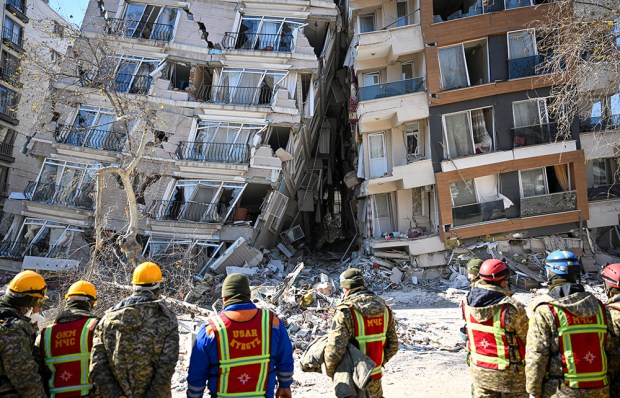Rufus Norris, the National Theatre’s artistic director, has revealed that all those tedious ancient plays will from now on be updated with a ‘modern twist’ to ‘bring in a fresh audience’. By way of example, he assures us that the forthcoming reworking of Sophocles’s Philoctetes (409 bc) will still be ‘a very valid Greek play’. Valid? What does he mean by that?
The original was pretty ‘valid’, with its chorus and three masked male actors playing all the parts, speaking and singing in complex metrical forms in high linguistic register; and it was a serious, elevated medium, inhabited by high-status characters. Most tragedies were drawn from myth. That too was surprisingly ‘valid’ for its time, but sadly lacking in modern concerns — feminism, gender, identity, rights, phobias, taking offence, victimhood, equality, globalism and diversity — though rather too up-to-date in its exploration of dysfunctional families. That is why tragedy featured powerful, aristocratic women: they were at the heart of families and fought for their interests as they saw them. Nor was it ‘political’, or only in the trivial sense that, being of its time, it reflected the time’s concerns: all, doubtless, a little too ‘valid’ for a ‘fresh audience’.
Tragedy also took the view that man and god were somehow inextricably and inexplicably intertwined, without man thereby being absolved from responsibility for his own actions. One wonders how ‘valid’ fresh audiences will find that. It is sometimes said that the unresolvable problems the characters faced were due to a ‘breakdown in communications’.
Nothing could be further from the truth. There was a piercing clarity about the issues at stake in the minds of the characters, blind to the reality they would ultimately have to confront. That was what went into the making of a tragedy. So too did the generation of emotional and distressed responses in the audience — fear, horror, pity — driven not by the banal ‘feelings’ of the characters but by the cold logic and coherence of events. No safe spaces there.
The NT Philoctetes will not be a ‘very valid Greek play’. It will be a very invalid Greek play. So drop the cant, Mr Norris. All that matters is: does it work as a play?
Got something to add? Join the discussion and comment below.
Get 10 issues for just $10
Subscribe to The Spectator Australia today for the next 10 magazine issues, plus full online access, for just $10.
You might disagree with half of it, but you’ll enjoy reading all of it. Try your first month for free, then just $2 a week for the remainder of your first year.














Comments
Don't miss out
Join the conversation with other Spectator Australia readers. Subscribe to leave a comment.
SUBSCRIBEAlready a subscriber? Log in